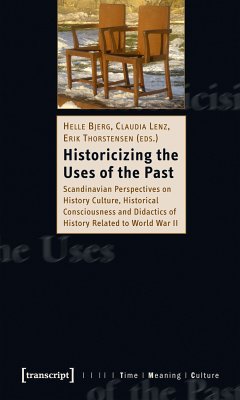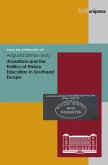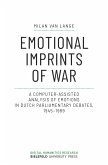This book presents new developments in Scandinavian memory cultures related to World War II and the Holocaust by combining this focus with the perspective of history didactics. The theoretical framework of historical consciousness offers an approach linking individual and collective uses and re-uses of the past to the question how history can and should be taught. It also offers some examples of good practice in this field. The book promotes a teaching practice which, in taking the social constructivist notions of historical consciousness as a starting point, can contribute to self-reflecting and critical thinking - being fundamental for any democratic political culture.
»Wegweisend ist in dem Band [...] das Operieren auf unterschiedlichen Ebenen kollektiver Erinnerungen oder, geschichtsdidaktisch gesprochen, die Multiperspektivität, die er eröffnet. Sie könnte Anstoß geben, zukünftig noch stärker auch unterhalb der nationalen Ebene auf regionale und kommunale Erinnerungsgemeinschaften, auf neue Medien, auf transnationale ebenso wie auf transregionale Netzwerke der Erinnerung zu blicken, in denen sich die Europäer ihre Geschichtsbilder malen.« Malte Thießen, H-Soz-u-Kult, 05.06.2012 Besprochen in: Zeitschrift für Geschlechterdidaktik, (2012), Katja Gorbahn








